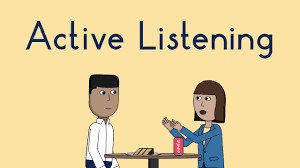5 Ways to Communicate More Effectively
The devil is always in the details. Even while we communicate with each other, we must pay attention to those small details like gestures and sights, because communication isn’t all about words.
1. Be an engaged listener

Of course, the way you choose to send your message matters. But, equally important, if not more important, is how well you know to pay attention, to listen, and to receive your interlocutor’s message.
It’s not the same thing to shut up and listen to a person than to actually be there with your thoughts and emotions, to be an engaged listener. We never speak just words. Most of the time, the real message can only be told by our gestures and facial expressions. Keep this in mind as you listen to others.
2. Express yourself
Communication is about expressing yourself. It’s about sharing your thoughts and feelings with others in an honest and open way. As well, you can assert yourself, meaning that you stand up for your beliefs while respecting the opinions of others.
3. Pay attention to nonverbal signs

When we communicate with each other, we rarely use only words. Most of the time, we are using our body language—which includes gestures, facial expressions, voice tones, eye contact, posture, and even breathing—to send our message.
4. Control your emotions
Far too often, when we touch on a sensitive subject, we allow our emotions to lead us in a conversation. Sometimes, we then forget the whole point of that conversation, leading to an unpleasant situation where we say things that we later regret.
Strong feelings like love and stress can easily cloud our minds during conversations and make us no longer think rationally. In these situations, emotional management techniques can help us return to a relaxed and rational state and enable us to engage with others without losing our cool.
5. Make intentional language choices

Last, but not least, the words we choose to speak can have a great impact on our message, and they can determine how effectively it is passed on to others. For instance, if you’re a team leader and want to let your team know that you’re in this together, use pronouns like “us” and “we” while speaking. This way, they will start to think of themselves more like a part of the team and less like an individual part of the company. In short: Words can have a lot of power if you know how and when to speak them. You can study techniques like neuro-linguistic programming to understand more about how to leverage the power of words.











